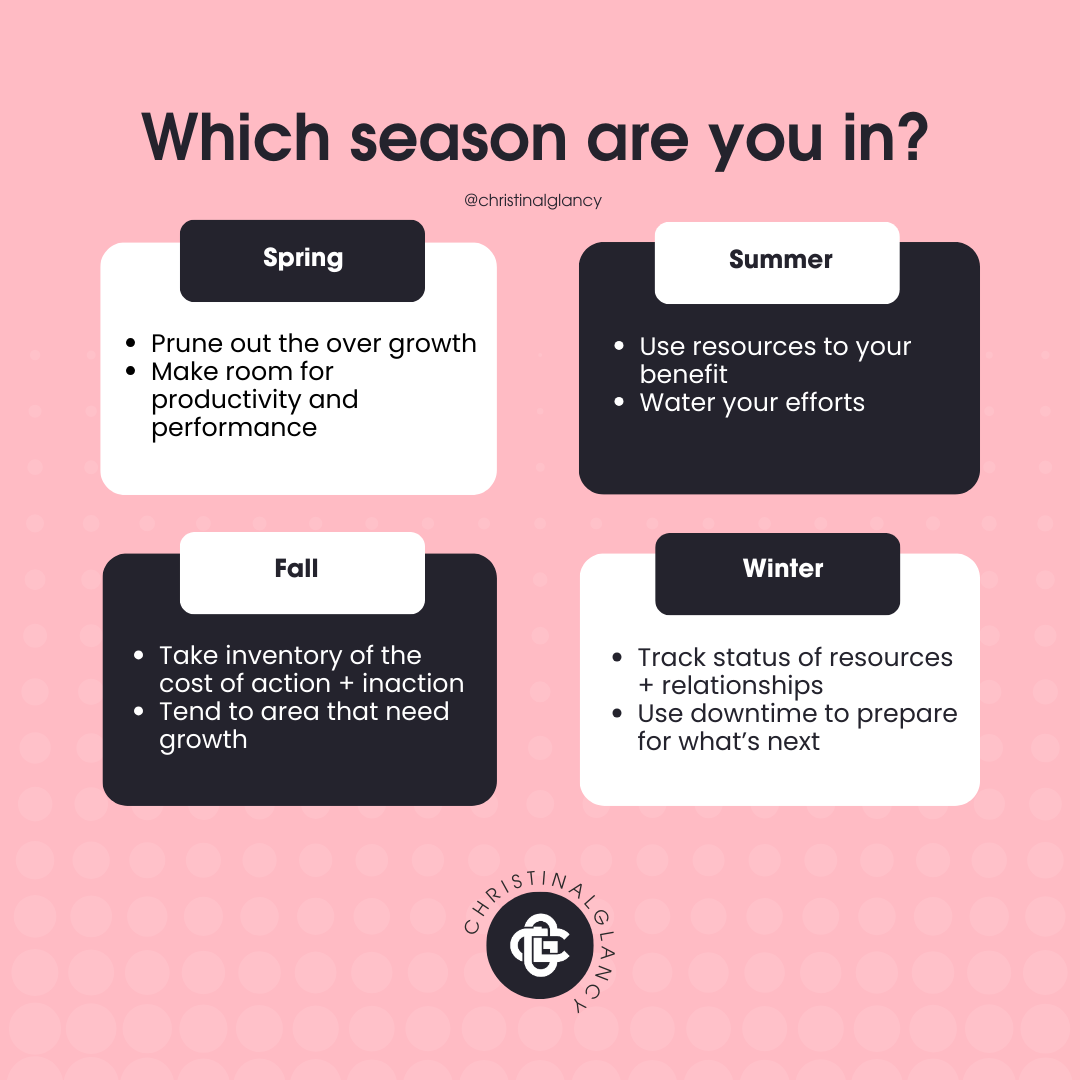Navigate Your Career on the Right Setting
Each season requires different resources. What are you doing with yours?
The weather isn’t the only thing that has seasons. Your career does, too.
Evaluating your resources every season is essential to staying relevant in the digital age. Maintaining an effective and adaptable approach to the workforce is great practice to maneuver growth and conflict resolutions.
Here are five reasons why this practice is important:
1. Adapting to Market Changes
Seasonal evaluations allow you to stay responsive to changing market conditions. Industries often experience shifts in demand, emerging trends, or technological advancements that can impact workforce needs. By reviewing resources each season, you can ensure that your team is equipped with the necessary skills and tools to meet new challenges and opportunities.
2. Identifying Skill Gaps and Training Needs
Regular evaluation helps pinpoint areas where your workforce may need additional training or development. Skills that were relevant in one season might become outdated in the next. Evaluating resources ensures that you're investing in the right training programs to keep your team competitive and aligned with industry standards.
3. Optimizing Resource Allocation
By assessing your resources seasonally, you can make data-driven decisions about where to allocate staff, budget, and time. This can lead to improved efficiency, ensuring that high-priority tasks or projects are given the attention and support they require, while underperforming or redundant areas are reallocated.
4. Enhancing Employee Morale and Engagement
Employees appreciate when their contributions are recognized and when there is a clear plan for their growth and development. Seasonal evaluations help you understand what motivates your team, what challenges they face, and what resources they need to thrive. Addressing these factors can increase engagement, reduce turnover, and build a stronger organizational culture.
5. Improving Long-Term Strategic Planning
Evaluating your workforce resources regularly allows you to make adjustments based on real-time feedback and data. These evaluations provide valuable insights that inform your long-term strategic planning, helping you anticipate future needs and allocate resources more effectively for sustained growth and success.
By incorporating seasonal evaluations into your workforce strategy, you ensure that your team remains agile, skilled, and aligned with the overall goals of the organization.


